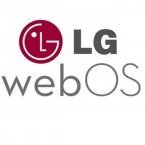-
Similar Topics
-
By News Reporter
TCL is resurrecting the Palm brand with a brand-new Palm, Inc. based in California. As we reported last week,
link hidden, please login to view late last year, although at the time it wasn't clear what the company had planned. It's not at all clear what TCL intends to do with the Palm brand, although they seem to recognize the history that the brand carries. Says TCL:
Palm has always carried a lot of affect and emotions. That's why TCL has set the direction to rebuild the brand involving Palm's very own community, making it the largest scale crowd-sourced project ever seen in the industry.
Where TCL's Alcatel Onetouch has long produced , and it seems that TCL wants Palm to be a division that produces "a more-advanced device", with "breakthrough innovations" across the hardware, software, and even sales models.
TCL's full weight will be behind Palm, touting 5000 engineers and 7 research-and-development centers around the world. When we'll see more from TCL and Palm isn't clear, but we do know one thing: Palm is coming back.
, with Palm being founded as an independent company in 1992, being bought by US Robotics in 1995, and then 3Com in 1996, being spun off in 2000, split in half in 2002 and renamed PalmOne, merged with Handspring in 2003, rebranding as Palm, launching webOS in 2009, selling to HP in 2010, getting canceled in 2011, webOS getting open sourced in 2012, and the remnants of the Palm company (minus the branding) being sold to LG in 2013. It's rare that a company receives a second life as Palm did, and rarer still to be revived after being left for dead.
Regardless, the Palm brand carries a lot of emotion for many, so it's good to see it coming back and we hope TCL produces a phone that's worthy of the name Palm.
-
By Alex
If you are webOS enthusiast, you remember Palm as the brand that brought you webOS 1.0 on a smart phone before it was sold to HP fro Touchpads and then LG for Smart TVs. Today, we have webOS off to LG and the Palm brand off to TCL Communications. We have been waiting to see what was to come with palm and today we have a new website that's up and a cool gadget, dubbed a "companion".
Below is information from
link hidden, please login to view "We found partners who were as passionate about celebrating the choice to stay connected and be present with Palm, a vision that brings people out of technology and back into their lives. We’re working with TCL Communication to manufacture Palm and exclusively launching with Verizon Wireless in the United States, establishing the new ultra-mobile category."
History of Palm
Palm was one of the first companies to put mobile devices into consumers’ hands. Palm changed the mobile game when they introduced the popular PalmPilot in 1996—ushering in the handheld mobile era.
Palm is back and ready to change the game again. The original PalmPilot made your computer mobile, now we’re making smartphones truly mobile again. We have embraced Palm’s innovative spirit and created a new ultra-mobile device that keeps you connected and present at the same time.
The new Palm is an ultra-mobile product that’s about the size of a credit card with smart features and quick actions, so you can instantly access everything you need and nothing you don’t—even when your smartphone is nowhere to be seen.
Palm syncs with your Android or iOS device so you’ll never miss a thing, even if your smartphone is at home.
Features
Size of a Credit Card Syncs with Android and iOS Stunning HD Display Water and Dust Resistant Two Cameras 12MP and 8MP Runs on Android with Google Assistant Facial Recognition Gesture Pad Quick Actions
Specs
Processor Qualcomm® 435 processor. Octa-core CPU Display 3.3” HD Display - 445 ppi high pixel density LCD Glass Impact resistant front and rear Corning Gorilla Glass Cameras 12MP rear camera with flash + 8MP front camera Construction Crafted billet aluminum mid-frame Durability IP68 water and dust resistant Memory 3 GB RAM / 32 GB Storage Battery 800mAh non-removable battery,All-day battery life*, 3+ day standby time Audio Dual-purpose speaker Sensors G-Sensor, Glonass GPS, Proximity, E-compass, Gyro Connectivity 4G LTE, Bluetooth 4.2 low energy WLAN 802.11 b/g/n (2.4GHz) Non-removable nano SIM OS Android 8.1 Security Face unlock Dimensions 50.6 x 96.6 x 7.4mm Weight 62.5 grams Colors Available in titanium and gold Visit for more information
-
By pivotCE
There’s a new Palm phone. It’s due to be released next month.
Now, if you are a long time Palm enthusiast (and reader of this blog) you will no doubt be telling your heart not to beat too quickly because to put it mildly, things have not worked out well in the past.
We already knew that TCL / Alcatel had
link hidden, please login to view (only). The possibility of a new phone running webOS was dismissed. The speculation on the was that we would be seeing a standard Android slab with the Palm logo stuck on, though no one could figure out quite how that would be a success.
In August, there were some leaks that . A small phone? OK! A low specification? Uh… You don’t have to wonder any longer. The curtain has been almost fully raised and we can confirm that the new phone is… both intriguing and potentially disappointing. Here are some bullet points:
It appears that the new Palm is in fact a startup that approached TCL with their plan. TCL backed them and handed them the Palm brand. “Pepito” was a codename. It’s just “Palm”. The reason the specs look like a ‘weekend’ phone is because it’s a weekend phone. It is in fact a ‘companion’ phone to your other, big phone. We are just a little webOS blog, so we have no inside sources or review model. There is . You can then read what at The Verge.
A number of webOS community members have done valuable work in maintaining popular services on our old webOS devices (not to mention keeping them working at all). But given the number of services that no longer work on webOS, using one of the original phones has much the same effect as the ‘Life Mode’ (AKA aeroplane mode) offered by this new device. However, I’m not going to condemn it.
The potential criticisms are obvious:
Why not just sell a smaller phone? It’s only available as an add on device, only on Verizon in the U.S. It costs $350. It’s true that there seems to be an increasing desire for phones that are smaller and for services that respect a balanced life rather than attempting to addict us to various feeds. There are few choices available for those that want these options. Within that context, the new Palm phone is different and distinctive. As a ‘lifestyle phone’, it is possible that it will appeal to trendy and fairly well-off people and actually sell. However, the Verizon exclusivity may limit access even to that particular demographic. If enough are sold to keep Palm in business, they could extend the concept to other networks and countries. It’s possible that the next model could build on that. Pepito2 could have better specs and be able to stand alone, usable as a companion device or a daily driver.
Of course, I’d say that an ideal OS for some kind of synchronizing connectivity across devices would be webOS, but that’s NEVER GOING TO HAPPEN, unless the boot-loader is unlocked and we install it ourselves.
So I wish the new Palm luck. In historical terms, there’s very little about this product that’s new, but it seems that it could fill a niche that’s opened up in the current smartphone market. This pricey life-style toy could evolve into the smaller, simpler phone for the many, but only time will tell and yes, I’m doubtful.
Those are my thoughts. What are yours? Here’s your comment thread.
Related posts:
-
By pivotCE
There’s a new
link hidden, please login to view. It’s due to be released next month. Now, if you are a long time Palm enthusiast (and reader of this blog) you will no doubt be telling your heart not to beat too quickly because to put it mildly, things have not worked out well in the past.
We already knew that TCL / Alcatel had (only). The possibility of a new phone running webOS was dismissed. The speculation on the was that we would be seeing a standard Android slab with the Palm logo stuck on, though no one could figure out quite how that would be a success.
In August, there were some leaks that . A small phone? OK! A low specification? Uh…
You don’t have to wonder any longer. The curtain has been almost fully raised and we can confirm that the new phone is… both intriguing and potentially disappointing. Here are some bullet points:
It appears that the new Palm is in fact a startup that approached TCL with their plan. TCL backed them and handed them the Palm brand. “Pepito” was a codename. It’s just “Palm”. The reason the specs look like a ‘weekend’ phone is because it’s a weekend phone. It is in fact a ‘companion’ phone to your other, big phone. We are just a little webOS blog, so we have no inside sources or review model. There is . You can then read what at The Verge.
A number of webOS community members have done valuable work in maintaining popular services on our old webOS devices (not to mention keeping them working at all). But given the number of services that no longer work on webOS, using one of the original phones has much the same effect as the ‘Life Mode’ (AKA aeroplane mode) offered by this new device. However, I’m not going to condemn it.
The potential criticisms are obvious:
Why not just sell a smaller phone? It’s only available as an add on device, only on Verizon in the U.S. It costs $350. It’s true that there seems to be an increasing desire for phones that are smaller and for services that respect a balanced life rather than attempting to addict us to various feeds. There are few choices available for those that want these options. Within that context, the new Palm phone is different and distinctive. As a ‘lifestyle phone’, it is possible that it will appeal to trendy and fairly well-off people and actually sell. However, the Verizon exclusivity may limit access even to that particular demographic. If enough are sold to keep Palm in business, they could extend the concept to other networks and countries. It’s possible that the next model could build on that. Pepito2 could have better specs and be able to stand alone, usable as a companion device or a daily driver.
Of course, I’d say that an ideal OS for some kind of synchronizing connectivity across devices would be webOS, but that’s NEVER GOING TO HAPPEN, unless the boot-loader is unlocked and we install it ourselves.
So I wish the new Palm luck. In historical terms, there’s very little about this product that’s new, but it seems that it could fill a niche that’s opened up in the current smartphone market. This pricey life-style toy could evolve into the smaller, simpler phone for the many, but only time will tell and yes, I’m doubtful.
Those are my thoughts. What are yours? .
Image credit:
The post first appeared on . Related posts:
-
-
By Alex
If you haven't noticed of late, the latest iterations of iOS and Android heavily leverage gestures with their user interfaces – something that a now defunct mobile platform was known for notoriously implementing. It's almost unbelievable to know that the Palm Pre was launched almost 9 years ago, which in the smartphone industry is a really, really long time. Looking back at what it helped to establish, there's no denying that it was simply one of those phones that was too ahead of its time.
It's almost unbelievable to know that the Palm Pre was launched almost 9 years ago.
One look at the Palm Pre when it first came onto the scene, its polished stone resemblance was a sight to behold back in 2009 – more so when it featured a portrait sliding QWERTY keyboard. For Palm, it was its most radically designed smartphone, setting itself apart not only from Palm's line of devices, but from all smartphones in general. Even more impressive, the Palm Pre featured wireless charging, which is a feature that only recently became akin to mostly high-end smartphones nowadays.
While the phone's specs weren't ground-breaking for a smartphone during its time, it's memorable for the software that Palm meticulously developed. Palm's webOS was something truly different! And it's really ironic how iOS and Android today adopted many of webOS' signature looks and features. The cards view we get in both mobile operating systems was something that webOS brought along back when it was introduced in 2009. Moreover, webOS heavily leveraged a ton of finger gestures for users to navigate around the platform. From the swipe up gesture that "minimized" apps into their card view, to swiping away to close those apps, a lot is owed to the fundamental principles of webOS.
Above all, though, the Palm Pre was ahead of its time thanks to its "Synergy" groundwork – something that intelligently populated the correct information with your contacts. Essentially, Synergy helped to merge your data from all your services, whether they were email, instant messaging, or just general address book information, Synergy just took the hassle of managing all of that on our own. There was also the universal search that webOS offered, which is yet another staple feature in today's smartphones.
However, we do recall how Palm was trying to sell us the vision of the future with Synergy – how a personal digital assistant of sorts could intelligently aid us. It reminds us of all the talk we have now about artificial intelligence. Palm sold us on the idea of how one day webOS can detect that you've snoozed your alarm too many times and automatically send text messages to the folks you're scheduled to meet up with – to tell them that you're going to be late. And that's all accomplished with Synergy's potential capabilities!
As we all know, we never got to that point with webOS, which is a shame because the platform was undeniably ahead of its time. Quite frankly, it's still unbelievable that the Palm Pre was released 9 years ago. Just think about the possibilities if webOS somehow managed to survive and thrive. Then again, today's mobile platforms have clearly adopted many of webOS' features, which shows why the Palm Pre is a testament in being regarded as one of the most revolutionary phones ever to be imagined.
Source:
link hidden, please login to view
-
-
Similar Tagged Content
-
- 4 replies
- 9,866 views
-
- 0 replies
- 2,959 views
-
- 6 replies
- 7,852 views
-
- 0 replies
- 12,243 views
-






Recommended Posts
Join the conversation
You can post now and register later. If you have an account, sign in now to post with your account.
Note: Your post will require moderator approval before it will be visible.